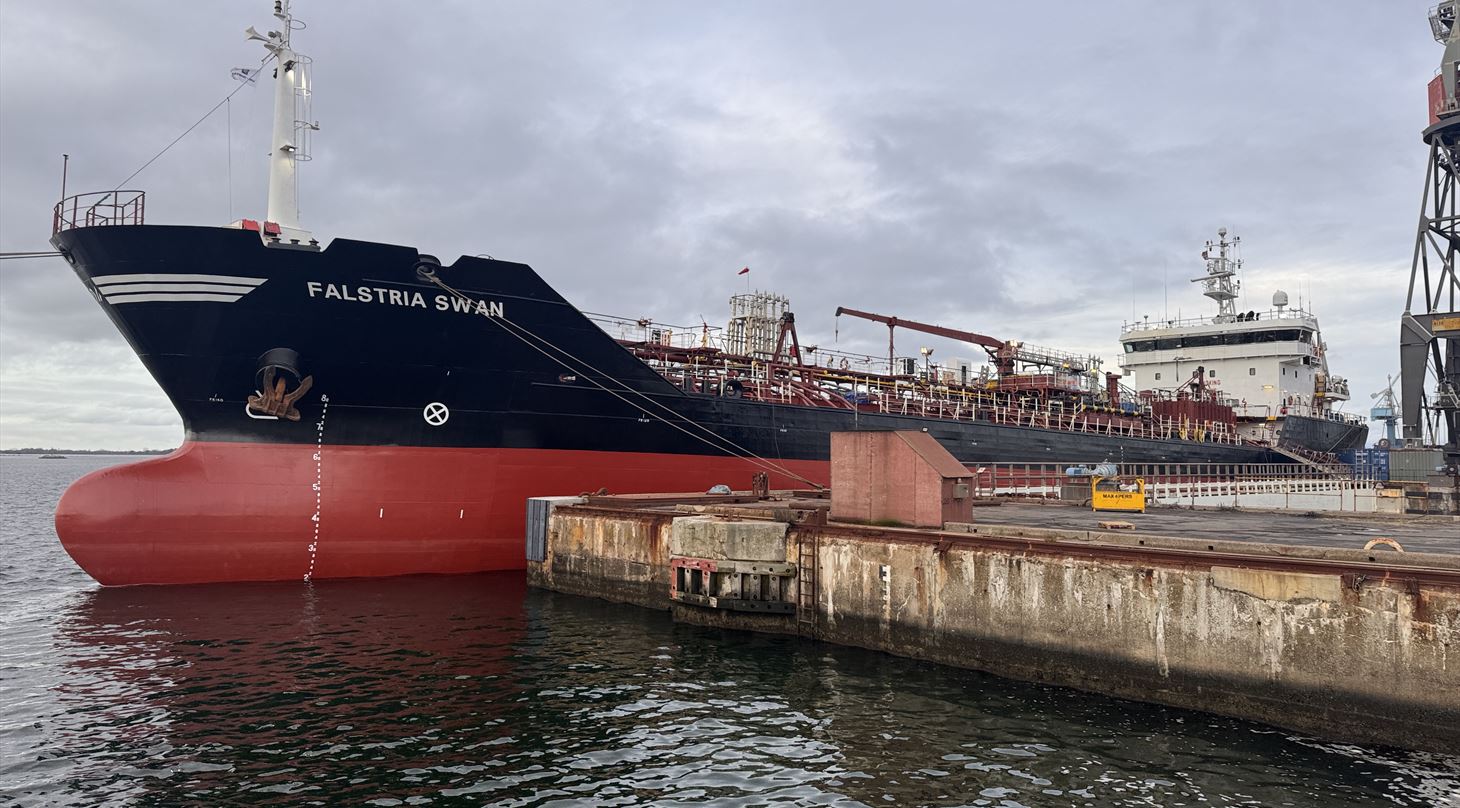
New Sensor Technology Paves the Way for Cleaner Shipping
The Cleanship project has installed newly developed sensor technology on a commercial vessel, enabling precise measurement of black carbon emissions under real sailing conditions for the first time.
A new Danish environmental project has reached a crucial milestone in its efforts to reduce the climate impact of shipping. Advanced sensors capable of real-time measurements of emissions, including black carbon, have been installed on the vessel Falstria Swan, operated by Uni-Tankers. This technology is essential for mitigating the environmental impact of shipping activities.
- This is a significant step for the Cleanship project. With this technology, we can provide concrete insights that help operators reduce emissions while ensuring compliance with future regulations," says Julie Tølbøl, Senior Project Manager at the Technological Institute and project leader for the Cleanship project.
Shipping accounts for approximately 3% of global CO2 emissions. While black carbon itself does not contain CO2, emissions of black carbon from ship engines contribute to global warming by absorbing sunlight and accelerating the melting of ice and snow. It also poses significant health risks, including cancer, respiratory diseases, and cardiovascular problems. The new technology arrives at a pivotal time, as the industry seeks to adapt to meet international climate goals.
Accurate Measurements in Real Conditions
Two emission systems from Green Instruments have been installed on the vessel Falstria Swan. One system specifically measures black carbon, while the other monitors key emissions such as CO2 and NOx. NOx refers to nitrogen oxides formed during combustion, which contribute to air pollution, smog, and acid rain.
- The real-time data we are now collecting is essential for understanding how we can reduce black carbon emissions—not just for this vessel but across the entire industry, explains Sonny Bækdahl Trudslev, Development Manager at Green Instruments.
The system is fully integrated with the ship’s operational systems and tracks key factors such as fuel consumption, engine load, and weather conditions. This enables a detailed understanding of how various onboard measures affect emissions during real-world operations.
Facts About Black Carbon
- Black carbon is the second largest climate risk in shipping after CO2.
- It is produced by the incomplete combustion of fuels in ship engines.
- Black carbon is carcinogenic and a major cause of respiratory diseases.
- The UN's Intergovernmental Panel on Climate Change (IPCC) recommends a 35% global reduction.
About the Cleanship Project
Cleanship is a Danish research project (2024–2026) led by the Technological Institute in collaboration with partners including Uni-Tankers A/S, Green Instruments, the Mærsk Mc-Kinney Møller Center for Zero Carbon Shipping, Danish Shipping, and Danish Maritime. The project aims to reduce harmful maritime emissions through testing and demonstration of biofuels, energy-saving technologies, and operational optimizations. The project is supported by the Danish Environmental Protection Agency's MUDP program with a grant of DKK 18 million.
Key Facts
- MUDP, Danish Environmental Protection Agency: DKK 18.2 million
- Total Budget: DKK 25 million
- Duration: 3 years
- Official Title: CLEANSHIP
Project Partners
Danish Technological Institute
As an independent, non-profit GTS institute, Danish Technological Institute strengthens businesses and society in addressing future technological and economic challenges. The institute prioritizes the transformation of the maritime sector and contributes expertise in sensor technology, data collection and analysis, advanced fuels, and project management for CLEANSHIP.
For more information: https://www.teknologisk.dk/
Uni-Tankers
Uni-Tankers is among the leading tanker shipping companies operating in the small and intermediate tanker segments. Uni-Tankers operates a fleet of 40 owned and time-chartered vessels, one of the youngest in its core markets. The company strives to deliver world-class service through technical expertise and an open, approachable culture. Headquartered in Middelfart, Denmark, Uni-Tankers also conducts commercial activities from offices in Aalborg (Denmark), Mougins (France), Istanbul (Turkey), Houston (USA), and Malaga (Spain).
For more information: https://uni-tankers.com/
Green Instruments
Green Instruments specializes in technologies for emissions control, water and gas monitoring, hazard detection, and energy optimization to enable more sustainable and safe vessel operations. Green Instruments is a global business with extensive experience in monitoring and analysis, and the company’s solutions are also applicable to industrial use. Founded in 1999, Green Instruments is headquartered and manufactures in Brønderslev, Denmark, with additional offices in the USA and Singapore.
For more information: https://greeninstruments.com/
Mærsk Mc-Kinney Møller Center for Zero Carbon Shipping
Mærsk Mc-Kinney Møller Center for Zero Carbon Shipping (MMMCZCS) is an independent, non-profit research and development center established in 2020 with funding from the A.P. Møller Foundation. Its purpose is to guide and create solutions for the global maritime industry that can accelerate the establishment of CO2-neutral shipping by 2050.
For more information and an overview of partners: www.zerocarbonshipping.com
Danish Shipping
Danish Shipping is an interest organization representing the interests of shipping companies in negotiations, advising government delegations, and collaborating with various international shipping organizations in the EU and globally.
For more information: https://danishshipping.dk/
Danish Maritime
Danish Maritime is a trade association for Danish suppliers of ships, maritime equipment, services, and ship design. In Denmark, Danish Maritime contributes to political decision-making at all levels and collaborates with other industry stakeholders to create optimal conditions. Politically, the work of the maritime industry concerns a wide range of areas, including transport, climate, environment, energy, employment, infrastructure, education, and research.
For more information: https://danskemaritime.dk/